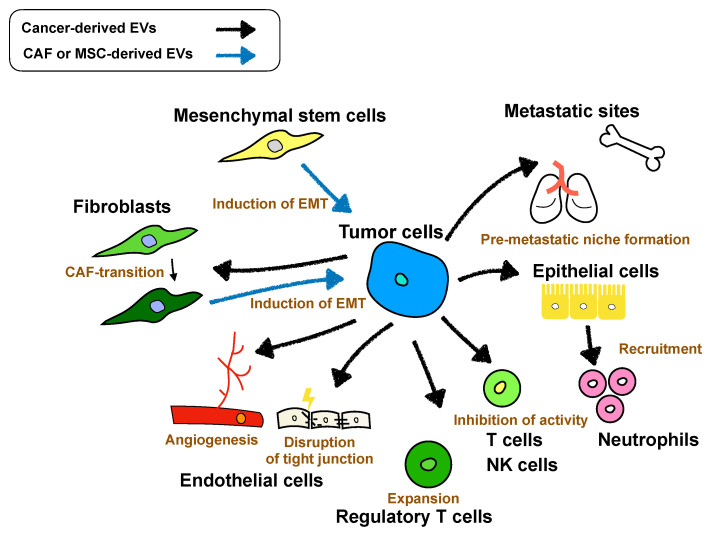Figure 1.
Cell-to-cell communication between tumor cells and surrounding cells via “extracellular vesicles” (EVs) in metastasis. Cancer-derived EVs contribute to cancer metastasis by educating primary and distant tumor environmental cells. In the metastatic process, cancer-derived EVs induce angiogenesis or disrupt tight junctions in ECs, induce cancer-associated fibroblast (CAF) transition, suppress the host immune system, and create a premetastatic niche. Moreover, EVs-derived from cancer surrounding cells, such as CAFs and mesenchymal stem cells (MSCs), also contribute to cancer metastasis.

